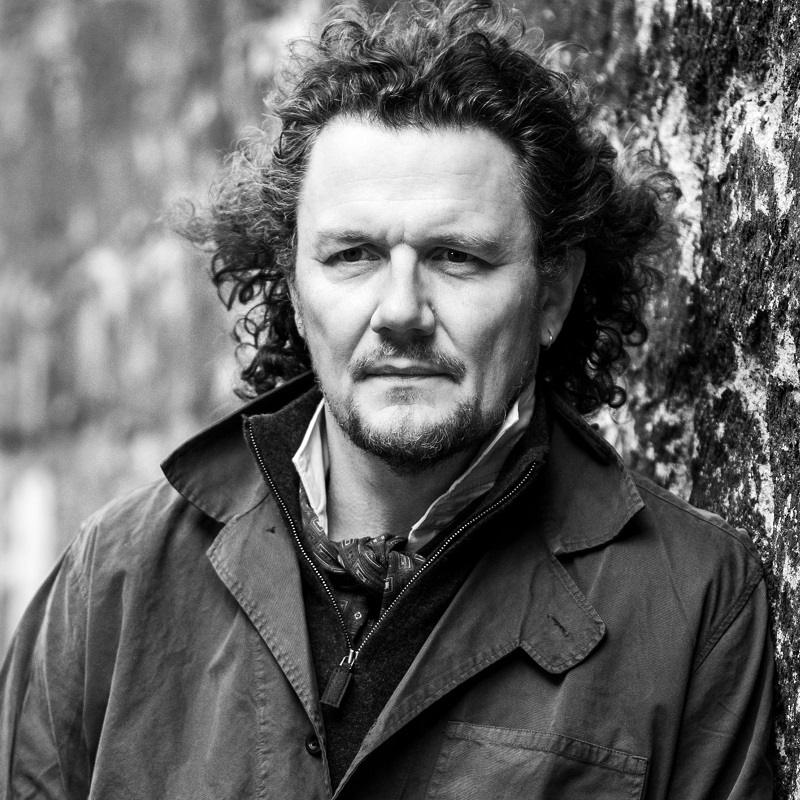
Giles Henschel, Olives Et Al
Recruiting the right team has been both a challenge and the key to success for Giles Henschel, the founder of Olives Et Al, a Dorset-based business that creates, sources and supplies fine food and has a £3 million turnover.
- What was the inspiration for your business?
In 1992 my wife Annie and I decided to give up our jobs and take a year off to travel. While travelling around the Mediterranean we encountered olives everywhere; there were hundreds of different varieties and we would stop and chat people who were picking them and collect recipes. We fell in love with the Mediterranean way of eating and how food was such an integral part of people’s lives.
When we got back to the UK we really missed that experience and decided to cheer ourselves up by buying some olives. But they were inedible; salty and bitter, so we improved them by using the recipes we had gathered, water-curing and fermenting them in buckets in our bedsit. Friends said we should start selling them so we took a stand at the Rural Living Show in Bath to see if anyone would buy them. They did, so we started preparing olives at home during the week and selling them at craft shows each weekend. We set out to change the way in which food was viewed and ended up being right at the forefront of a new food movement.
- How did you finance the growth of your business?
We spent £500, which was the last of our savings, buying olives and glass jars to get the business started, and since then we have never taken any outside investment. My wife and co-founder, Annie and I still own 100% of the business.
- What has been the most difficult or challenging part of growing your business?
Finding employees who can help us grow the business. That has been our biggest challenge right the way through. By 2010 we had a really experienced loyal team, which was both our biggest strength and our biggest weakness, because we only knew what we knew, and we didn’t know how to grow. Every year I was saying come on, this is the year to see stratospheric growth and every year we didn’t, so we would have the same conversation the next year. In the end my team came to see me one by one and said they didn’t want to work any harder to grow the business, so they were going to leave. There was a complete churn in the team which caused huge issues trying to replace them.
- What has been the impact of the pandemic on your business and how have you dealt with this?
When the first lockdown was announced we lost 98% of our business within a week. I used to pride myself on having this wonderfully broad range of sectors that we supplied – wine bars, hotels, pubs, clubs, restaurants, theatres, cinemas, airlines, farm shops – but every single one of them was closed.
Fortunately having watched the news through February I had been expecting something to happen so we had been quietly developing an ecommerce website called Loaf and Larder, which we launched on March 26th. It was basically our entire delicatessen online and for us it was a lifeboat. In the early days we were selling eggs, flour, yeast, Marmite, peanut butter, Cup-a-soups, because that was what people couldn’t get their hands on. We also had access to flour so we were baking bread every day. We took thousands of orders and I have personally driven over 40,000 miles since the first lockdown delivering to people’s houses in the local area round Dorset, Somerset and Wiltshire.
Now that the rest of our business is gradually coming back the website is evolving to meet the ever changing needs of our audience. I think there was a silver lining in Covid for us because it has made us much leaner and stronger as a business. We were once much larger in terms of turnover but today we are chasing profitable growth rather than just growth for the sake of growth.
- What key lesson have you learnt about setting up and growing a business?
That you can’t do it on your own; you have to find the right people to work in the business with you. You need to choose the right mesh of skills and then you need to keep your team motivated and on board with what you are trying to do.
- What has been your biggest mistake?
I brought people into the business who I thought were going to help me to grow it, but it turned out that they had a different agenda. It cost a lot of money to sort out, but we are still here and we have learnt a lot of lessons.
- What has been the secret of your success so far?
Having a great product - we have always wanted to do it completely right and not cut corners. And staying true to our core values of sustainability that we set the business up with. We always wanted to tread really lightly on the planet and we are doing that.
- What personal quality or characteristic has been most useful to you as an entrepreneur as you grow your business?
Endurance.


